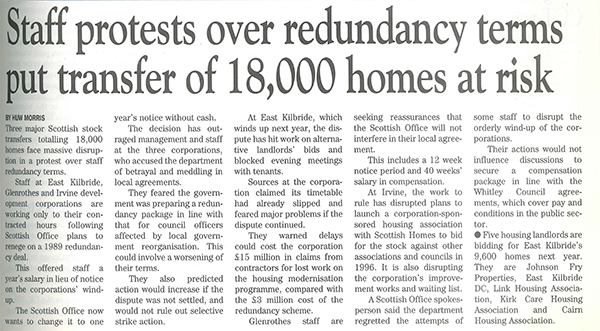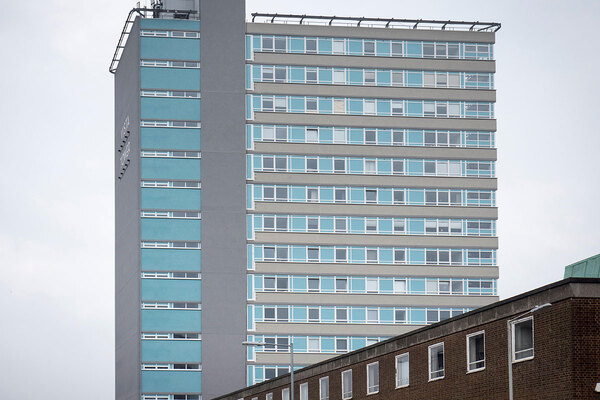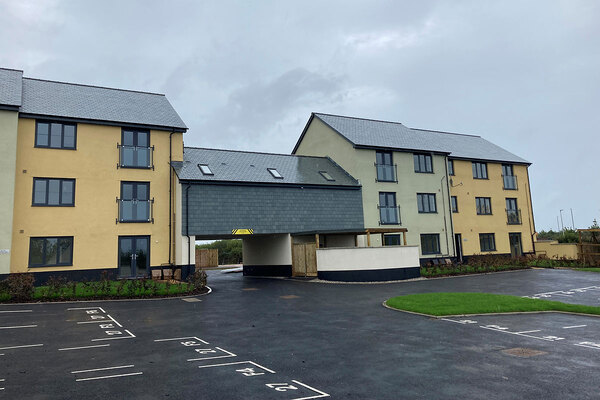You are viewing 1 of your 1 free articles
From the archive – Blunkett’s anti-social behaviour plan
Inside Housing looks back at what was happening in the sector this week five, 15 and 25 years ago
25 years ago
Three major stock transfer councils in Scotland were facing up to the prospect of disruption amid staff protests over redundancy terms.
Staff at East Kilbride, Glenrothes and Irvine development corporations were working only to contracted hours after the Scottish Office reneged on a 1989 redundancy deal that had offered a year’s salary in lieu of notice of the organisations being wound up.
The dispute had already affected East Kilbride’s work to assess landlords’ bids to run its 9,600 homes as it could not conduct evening meetings with tenants.
Sources at the council claimed that the timetable for transfer had already slipped behind schedule, with the council fearing major problems if the dispute continued.
At Irvine, meanwhile, the row disrupted plans for a corporation-sponsored housing association.
15 years ago
Home secretary David Blunkett told councils and housing associations to step up the fight against anti-social behaviour by sending nuisance neighbours on compulsory rehabilitation programmes.
Mr Blunkett wanted social landlords to ensure that tenants who were evicted from their homes took courses on parenting skills, financial management and anger management as a condition of being rehoused.
The power to enforce such programmes had been enshrined in the previous year’s Anti-Social Behaviour Act, but he wanted landlords to make greater use of it.
He told delegates at a Labour Party event in Oxford that he wanted to build on existing voluntary schemes in Dundee and Manchester.
“We are thinking of extending that further,” he said. “We have built into the Anti-Social Behaviour Act a facility that has not yet been used.”
He added that the voluntary schemes could be made compulsory.
Clarifying the remarks, a Home Office spokesperson said: “We’re not talking about evicting households and putting them in high-security blocks of flats. This is about tackling issues that lie behind anti-social behaviour.”
Picture: Getty
Five years ago
Counter-terrorism police launched a nationwide scheme for frontline housing staff to combat violent extremism.
Officers from Greater Manchester Police’s counter-terrorism unit had been working on a pilot scheme with one landlord and one contractor to train housing professionals in safeguarding vulnerable tenants from radicalisation.
Under the scheme, prevention engagement officers arranged visits to landlords to educate staff.
As part of the pilot, 13,000-home Adactus in Leigh had seen 625 of its staff trained to spot potential threats when entering tenants’ homes.
Mears Group had also taken part in the pilot, with management planning to “cascade training down across the whole group”.









